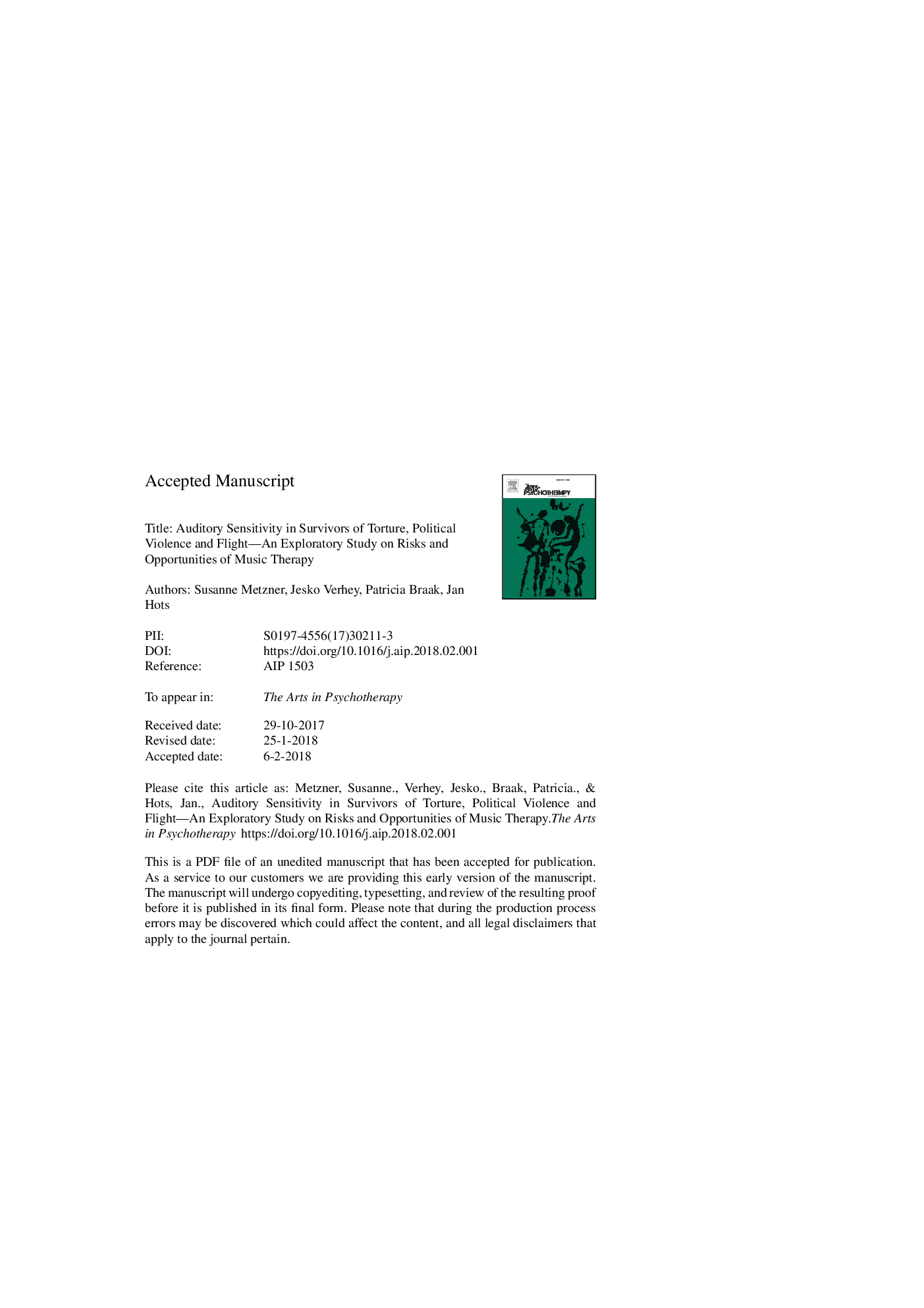| Article ID | Journal | Published Year | Pages | File Type |
|---|---|---|---|---|
| 6831378 | The Arts in Psychotherapy | 2018 | 31 Pages |
Abstract
In improvisatory group music therapy of the Zentrum Ãberleben in Berlin patients with complex trauma disorders induced by war, torture and flight frequently report an unpleasant sound perception. The objective of this exploratory study was to gain insight into the auditory perception of these patients and into opportunities of musical improvisation in the treatment of patients with complex PTSD. The study design combined a clinical and a psychoacoustic part. The clinical part investigated subjective comments on unpleasant sound perception in music therapy. In the psychoacoustic part, hearing thresholds and levels at most comfortable loudness (MCL) were measured using a standard audiometer. Evaluation of 24 group music therapy sessions revealed that the participants of this study communicated discomfort towards sounds mainly within the first 12 sessions. The psychoacoustic measurements showed a higher auditory sensitivity to changes in level, i.e., a steepened loudness growth function, compared to participants of a control group with a similar cultural background. The results indicate that patients with complex trauma disorders induced by war, torture and flight have an altered loudness perception, which may relate to the subjective expressions about unpleasant sound perception in music therapy. The present study shows that music therapists working with survivors of torture and (civil) wars must consider that an increase in auditory sensitivity to sounds is to be expected and should, therefore, fine-tune their therapeutic interventions.
Related Topics
Health Sciences
Medicine and Dentistry
Psychiatry and Mental Health
Authors
Susanne Metzner, Jesko Verhey, Patricia Braak, Jan Hots,
